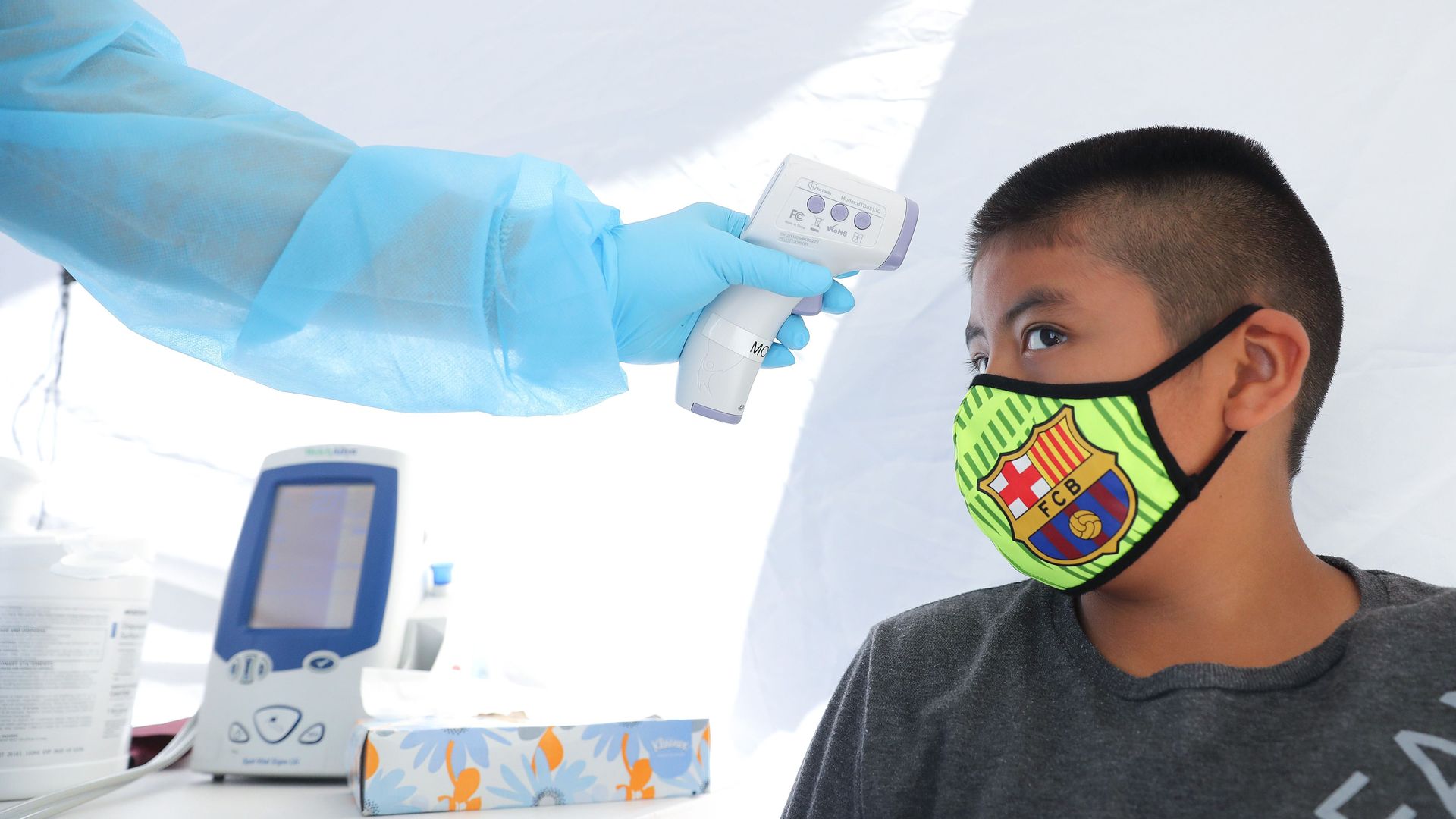97,000 children test positive for coronavirus in two weeks
Add Axios as your preferred source to
see more of our stories on Google.

A boy has his temperature checked as he receives a free COVID-19 test in South Los Angeles in July. Photo: Mario Tama/Getty Images
At least 97,000 children tested positive for COVID-19 in the final two weeks of July and there's been an estimated 338,000 cases involving kids in the U.S. since the pandemic began, a new report finds.
Why it matters: The report from the American Academy of Pediatrics and the Children's Hospital Association comes as schools and day cares look to reopen in the U.S.
- New York Gov. Andrew Cuomo (D) announced Friday that school districts in the state could resume in-person classes in the fall amid lower coronavirus transmission rates.
- Some schools have already reopened for in-person learning in the South — including in Georgia, where authorities confirmed nine people had tested positive for the novel coronavirus at one school.
- There have been many reports about the virus spreading through schools and summer camps, and evidence has begun to support the notion that children can play a key role in community transmission, Axios' Caitlin Owens notes.
Of note: The virus disproportionately affects Black and Latino children, who have the highest rates of hospitalization, per the CDC.
- The CDC received 570 reports from March 2 to July 18 of young people, whose ages ranged from infancy to 20 years old, infected with the virus. Of those, 40.5% were Hispanic or Latino, 33.1% were Black and 13.2% were white.
What we know: The latest CDC Morbidity and Mortality Weekly Report states that while most coronavirus cases in children tend to be asymptomatic or mild, less is known about severe infections in children requiring hospitalization.
- The CDC notes that children are much less likely to end up in hospital with the coronavirus than adults, but "one in three hospitalized children was admitted to an intensive care unit."
- A South Korean study last month found those aged 10 to 19 can spread the coronavirus at least as effectively people over those ages.
- NIAID director Anthony Fauci has said that while young children may be less susceptible to COVID-19, they're capable of spreading it as they can have a "have a higher viral load in their nasal pharynx."
The bottom line: Tina Hartert of Vanderbilt University, who's leading a government-funded study into the impact of the coronavirus on children, told AP: "[W]e just don’t know yet the degree to which children can transmit the virus."
Go deeper: How back-to-school is playing out in the South as coronavirus rages on
